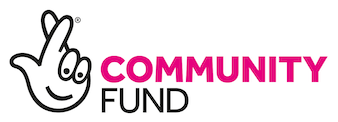Did You Know?
Drug Awareness
Drugs are addictive substances; you can become physically as well as mentally dependent, in some cases very quickly. What may start out as an ‘experiment’, or just ‘dabbling’, can lead to a vicious reliance on drugs, resulting in dependency and addiction. There is no standard, all encompassing definition of drugs; they come in many forms, altering behaviour in different ways, with different effects and different consequences and some are even categorised as legal, however, what they all share is their unpredictable nature.
There is no definitive reaction to drugs – people can react differently depending on tolerance levels, what the drug is cut with and health complications. The safest, and easiest way to be safe, is to not take drugs.
The information below highlights the dangerous nature of drug consumption and potential legal consequences, and what to do if you’re feeling unwell after taking drugs – but remember, we’re here to help, so if you feel that One Recovery can help you, please get in touch via our online contact form, phone or dropping into our services
Drug statistics
- Between 2014 and 2015 use of ecstasy amongst 16 to 24 year olds increased from 3.9% to 5.4%.
- Just over one-third (34.7%) of adults aged 16 to 59 had taken drugs at some point during their lifetime.
- Around 1 in 12 (8.6%) adults aged 16 to 59 had taken an illicit drug in the last year. This equated to around 2.8 million people
- Cannabis was the most commonly used drug in the last year, with 6.7 per cent of adults aged 16 to 59 using it in the last year
- More than 350 NPS/legal highs have been identified, with the list ever growing

The Law
The Misuse of Drugs Act (MDA) act is intended to prevent the non-medical use of certain drugs via regulation into three banned categories:
| Drug Class | Possession | Supply |
| Class A | 7 years + fine | Life + fine |
| Class B | 5 years + fine | 14 years + fine |
| Class C | 2 years + fine | 14 years + fine |
Convictions and sentences differ according to the nature of the offence, with supply more serious than possession. Less serious offences are usually dealt via magistrates’ courts.
- Class A: Cocaine/Crack, Heroin, Ecstasy, LSD, amongst others
- Class B: Amphetamines, Ketamine, Cannabis, amongst others
- Class C: Anabolic Steroids, Khat, amongst others
Do you need medical help?
If you think you are having a bad reaction soon after taking drugs, or the symptoms do not settle after some time out, fresh air and fluids, you should get medical help straight away by going to your nearest A&E.
If you are worried by a continuing negative effect on your health as a result of drugs, you should visit your GP or contact One Recovery.
How can One Recovery help?
At One Recovery we understand the all-encompassing nature of drug addiction, and the dangers that can stem from initial drug use – we realise it may not be an easy step to recognise that you have a problem with your drug use, but interacting with our service is a step in the right direction.
To get in contact with our services and see how we can help you, check out our service page, and/or for more information on substance use go to our resource page where you can find an array of downloadable publications and links.


